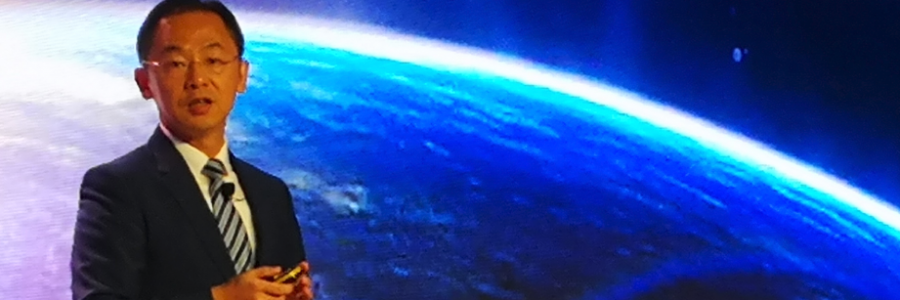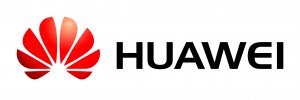
Superfast 5G Digital Internet behind the Iron curtain


Google revoked Huawei’s Android licence and barred from some updates to the Android operating system and set to lose access to some Google apps. Google said it was “ complying with the order and reviewing the implications”.
Huawei said “ We will continue to build a safe and sustainable ecosystem in order to provide the best experience for all users globally”. Existing Huawei smartphone users will be able to update apps and push through security fixes as well as update GooglePlay services.
Huawei, a pioneer in 5Gs. mobile internet, is accused of being a gateway for China to spy on Western nations. Is the company guilty or the victim of unfair and malicious rumours.
In 2006, Beijing pledged $200m to build the African Union headquarters which was completed in 2012, including a state-of-the-art computer system built by the Chinese. For several years the building with China as the trading partner economic growth boosted by 20 per cent a year. But in January 2017, Le Monde Afrique, a French newspaper ran a scoop reporting that the African Union’s computer system has been compromised, citing multiple sources that for five years between the hours of midnight and 02:00, data from the AU’s servers was transferred to servers in Shanghai and allegedly continued for 1825 days consequently. It also reported that microphones and listening devices had been discovered in the walls and desks of the building following a sweep for bugs. Both China and AU officials publicly condemned the report as false and sensationalist – an attempt by western media to damage relations between Africa and China. The main supplier of the Information and Technology system to the AU was Huawei.
“This does not mean the company was complicit in any theft of data,” according to Danielle Cae of Australian strategic Policy Institute in a review of the alleged incident. A Huawei spokesman said “ There is no evidence to indicate that Huawei’s telecoms network equipment was ever used by the Chinese government –or any one else – to gain access to the data of their customers/ Huawei was one of several suppliers to the project.
But this reports caused major suspicions about Huawei – that a large Chinese technology company might find itself unduly influenced by the Chinese government.
Huawei’s ( Splendid achievement ) founder and Chairman Ren Zhengfei, sitting in the Huawei headquarters in Shenzhen was able to sell simple telecoms equipment to the rural Chinese market – as the world’s second biggest smartphone firm and his success is due to the fact that he has worked his whole lifetime. In Dongguan a few kilometres from Huawei’s Shenzhen HQ, houses their latest campus that accommodate 25, 000 R &D Staff in 12 villages each of which recreates architecture from Paris, Bologna and Granada, with Corridors of Roman pillars and French cafes with a train linking different areas through artificial lakes and botanical gardens and remind us it is not only the Silicon Valley who could create European architecture.
In 1995, Huawei was generating sales of US $220m from China alone and in 2002, it made US $552m from its international market sales and by 2005, its international market contracts exceeded its domestic business. Huawei is privately held and employee-owned which gave Ren power to plough ore money back into research and development as Huawei spends US$20bn on R&D each year, one of the biggest budges in the world.
From early days of the company Ren was cooking for his staff and announced his ambition to be a top three player in the global communications market 20 years from now. Today, Huawei, is the world’s largest seller of network telecommunications equipment and sells more smartphones than Apple.
Ren and Huawei’s links to the Chinese Communist Party have raised suspicions that the company owes its meteoric rise to its powerful political connections in China. The US has accused Huawei of being a tool of the Chinese government, which Ren denies.
Ren explains “ Please don’t think that Huawei has become what it is today because we have special connection. Even 100 per cent state-owned companies have failed. Do good connections means you will succeed then. Huawei’s success is still very much due to our hard work.”
On 1st December 2018, US President Donald Trump and China’s President Xi Jinping were dining at the G20 summit in Buenos Aires and in the middle of a trade war imposing tariffs on each other’s goods – and growth forecasts for both countries had been cut. The two leaders agreed a truce in the trade war, with Donald Trump tweeting that “Relations with China have taken a Big leap forward!”
In the meanwhile, in Canada, an arrest was taking place that would throw dout on thi rapprochement. Meng Wanzhou, Huawei’s chief financial officer and Ren Zhengfel’s eldest daughter has been detained by Canadian officials while transferring between flights at Vancouver airport, The arrest had been prompted at the request of the US, who accused her of breaking sanctions against Iran, and two months later the US Department of Justice filed two indictments against Huawei and Ms Meng, the first being Huawei and Ms Meng were charged with misleading banks and the US government about their business in Iran, the second against Huawei, involved in criminal charges including obstruction of justice and the attempted theft of trade secrets. Both Huawei and Ms Meng deny the charges.
The charge of stealing trade secrets is about a robotic tool developed by T-Mobile known as Tappy. According to legal documents, Huawei had tried to buy Tappy, a device which mimicked human fingers by tapping mobile phone screens rapidly to test responsiveness. T-Mobile was in partnership with Huawei at the time, but it rebuffed the Chinese firm’s offers, fearing it would use the technology to make phones for T-Mobile competitors. It’s alleged one of Huawei’s US employees smuggled Tappy’s robotic arm into his satchel so that he could send its details to colleagues in China, which the Huawei employee claimed that the arm had mistakenly fallen into his bag. Huawei claimed that the employee had been acting alone, and the case was settled out of court in 2014. But the latest case is built on email between managers in China and the company’s US employees linking Huawei management to the alleged theft. The indictment details evidence of a bonus scheme from 2013, offering Huawei employees financial rewards for stealing confidential information from competitors. Huawei has denied any such scheme exists. In the past Cisco, Nortel and Motorola have all pointed the finger at the Chinese firm. The US government has seen Huawei as little more than an arm of the Chinese Communist Party. These concerns have been brought to the fore with the advent of the 5G mobile internet, which promises to download at 20 times faster speed than at present, and much greater connectivity between devices. The US has warned its intelligence partners that awarding contracts to Huawei would be equivalent to allowing the Chinese spy on them.
US Secretary of State Mike Pompeo recently warned against using Huawei saying “If a country adopts this and puts it in some of their critical information systems, we won’t be able to share information with them.”
Although Australia banned Huawei equipment suppliers saying “likely to be subject to extrajudicial directions from a foreign government.” Danielle Cave of the Australian Strategic Policy institute says the company posed a national security risk because of its government links. The Chinese law makes it impossible for any company to refuse to help the Chinese Communist Party in intelligence gathering. “But what is missing from this debate is the smoking gun” she said.
The fact of the matter is the Silicon Valley technology companies have not yet perfected 5G. For the technology hungry average person 5G is a big deal even if its from Huawei smartphone. But if you are a Western government which has to protect key security- why would you allow this access to a company that is in the political system that China is in?”
The Chinese government has clearly said it won’t ask companies to install backdoors or a secret entry point in software or a computer system that gives access to person or entity who installed it to the inner working of the system.
China has detained two Canadian citizens accusing them of stealing state secrets although critics say the detentions are linked to Ms Meng’s arrest.
Companies like Huawei have grown up in a system where to survive and succeed they needed strong links to the Chinese government there was and is no other choice. But these links could harm their reputation abroad.
Zhu Peiying head of Huawei’s 5G wireless labs shows off devices that can connect to the new 5G technology, from a smart toothbrush that collects data about how well you brush your teeth to a smart cup which can remind you when to drink some water and everything from driverless cars, temperature of buildings and speed of public transport all need 5G. Huawei is thought to be a year ahead of its competitors.
Ren said “ There’s no way the US can crush us. The world needs Huawei because we are more advanced. Even if they persuade more countries not to use us temporarily we could just scle things down a bit.”
